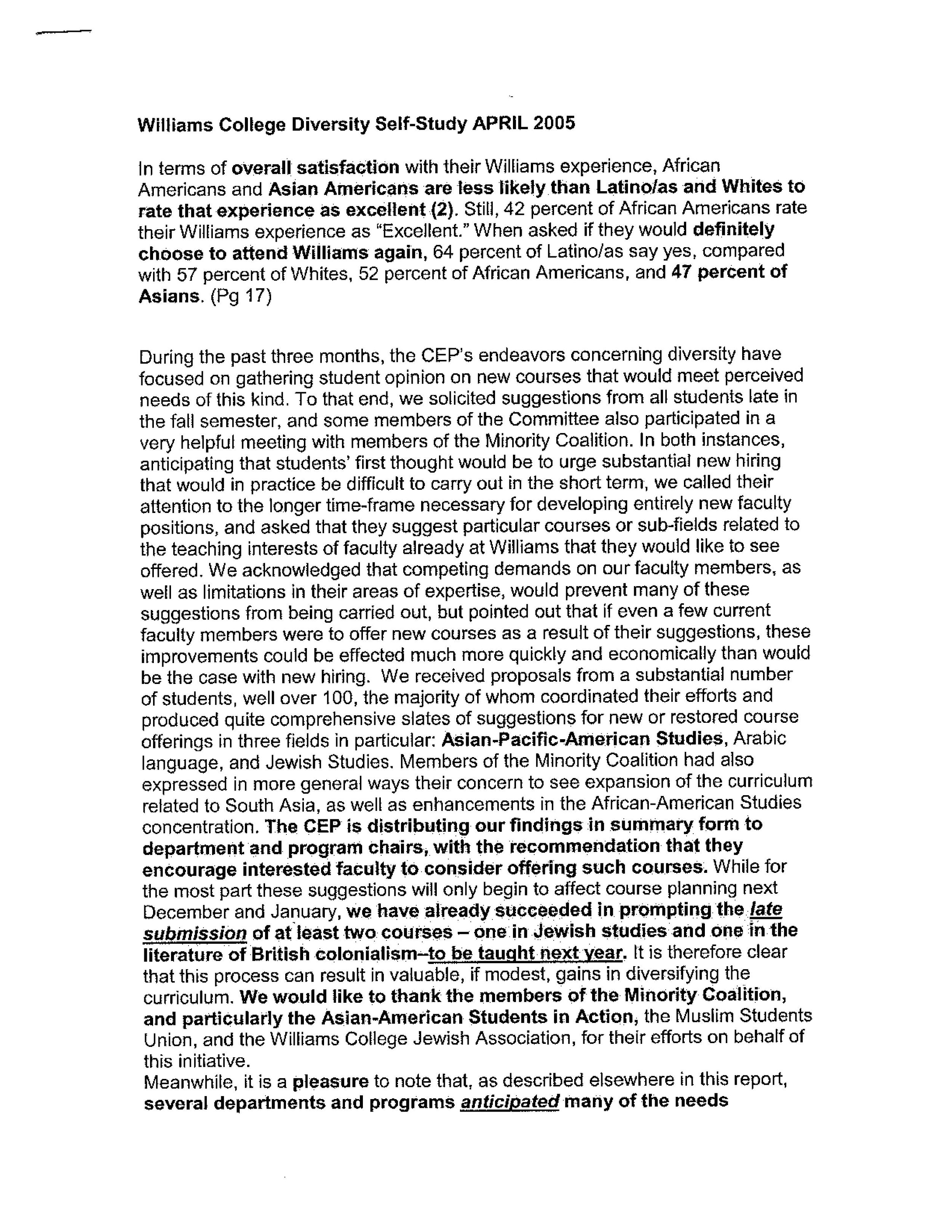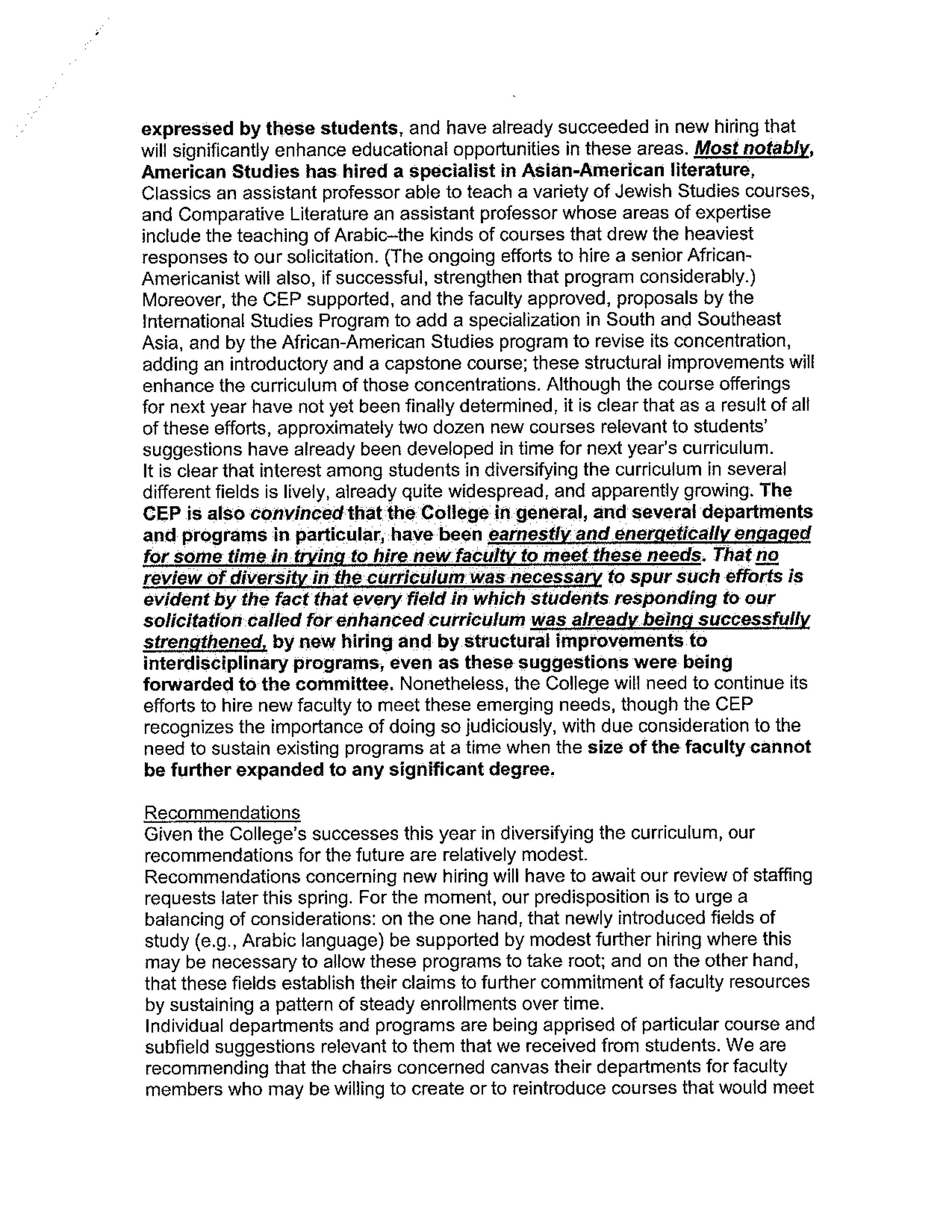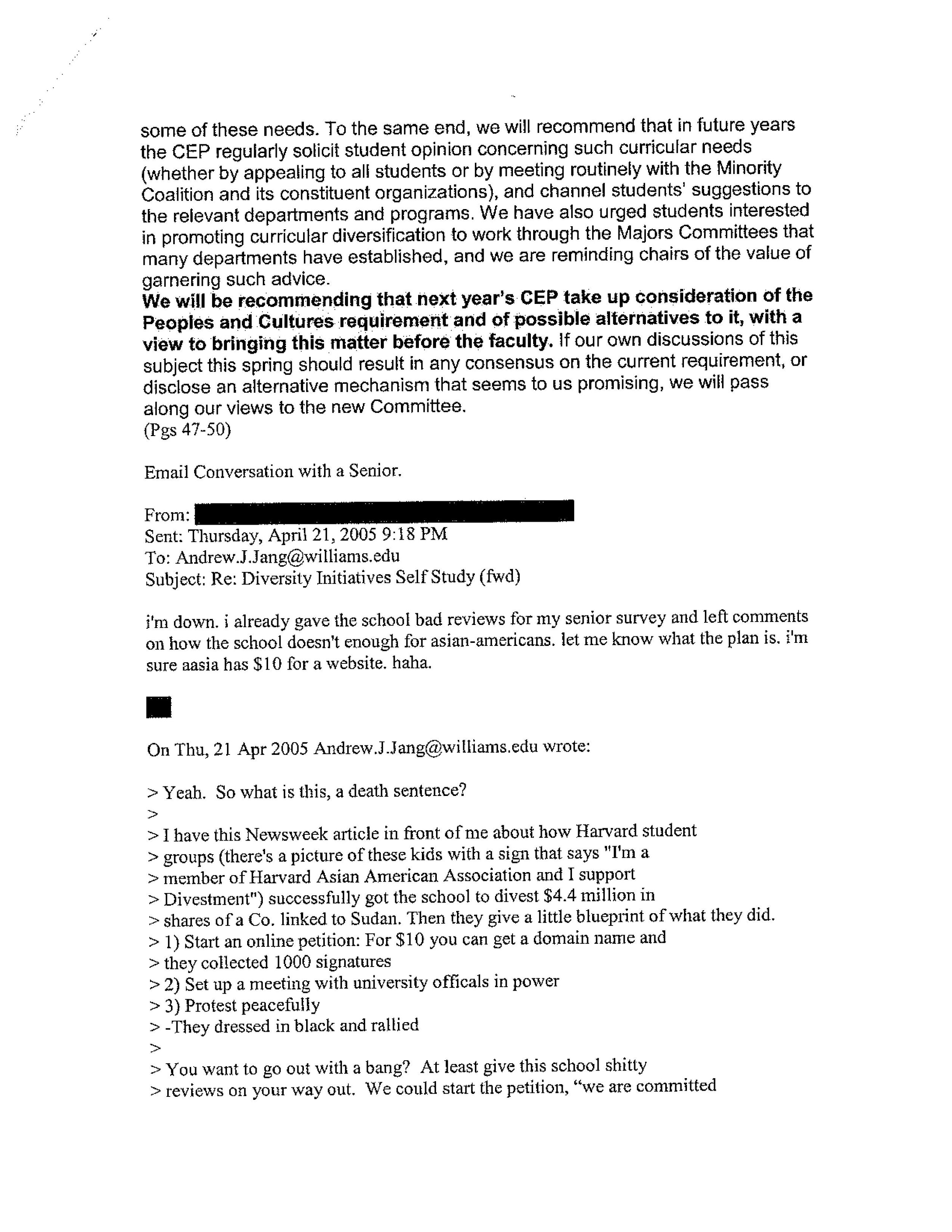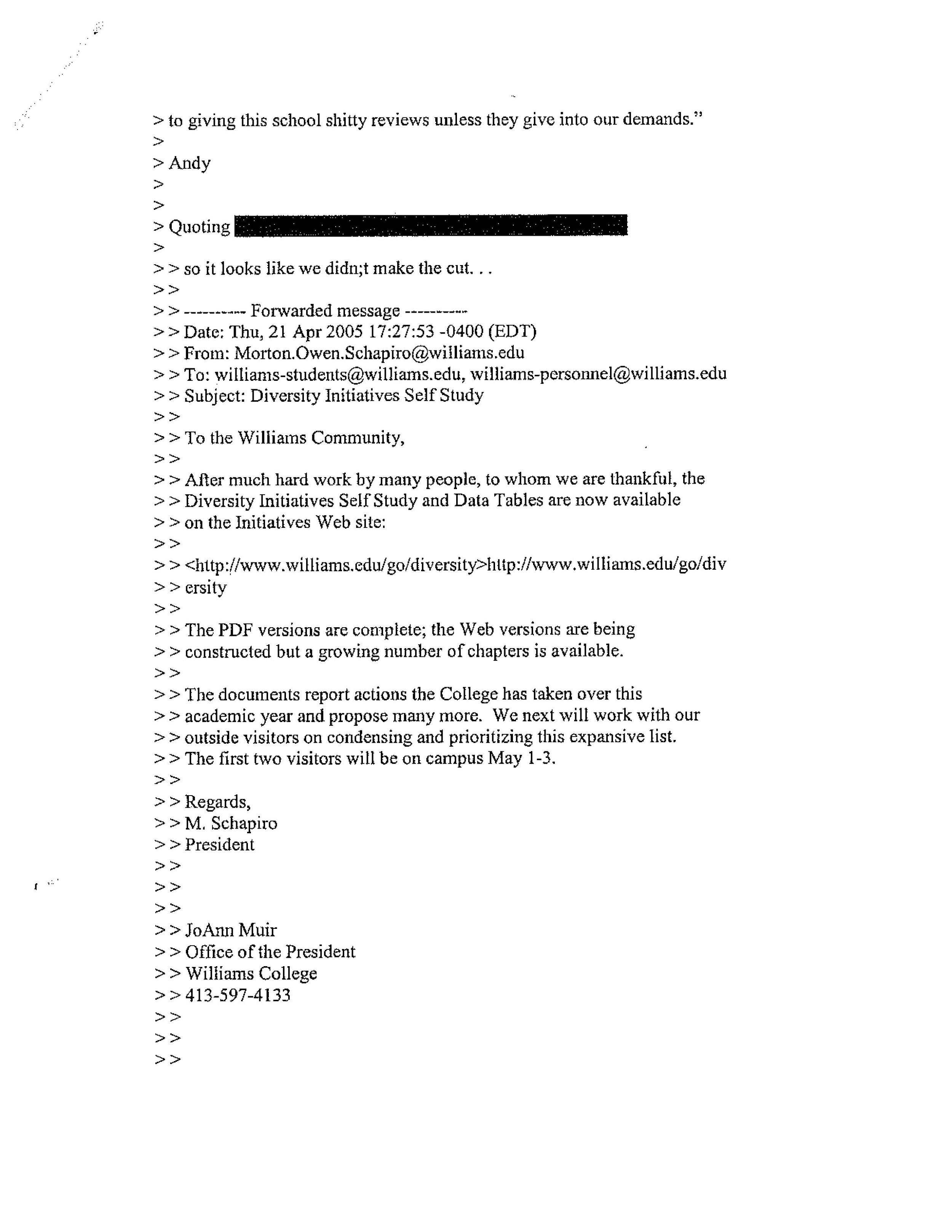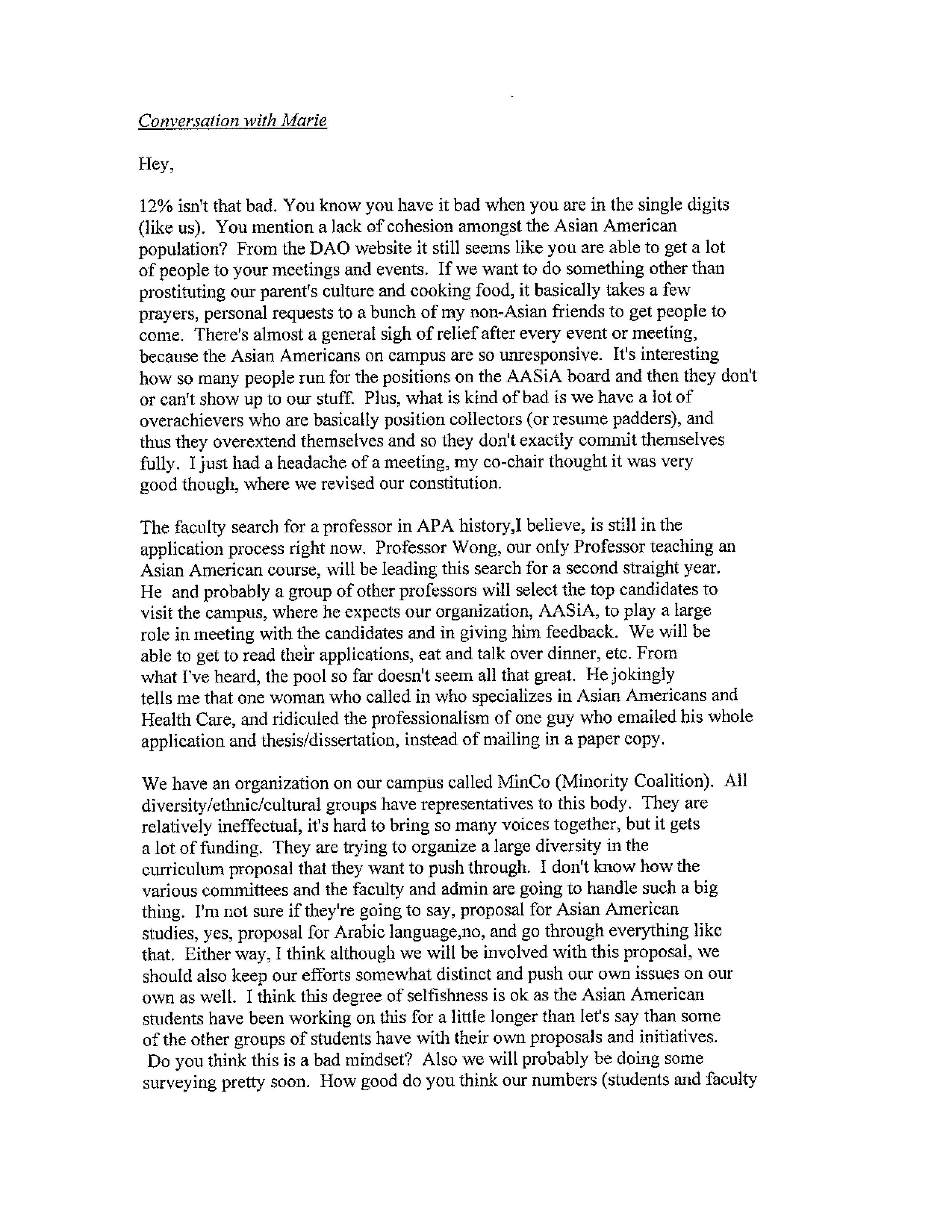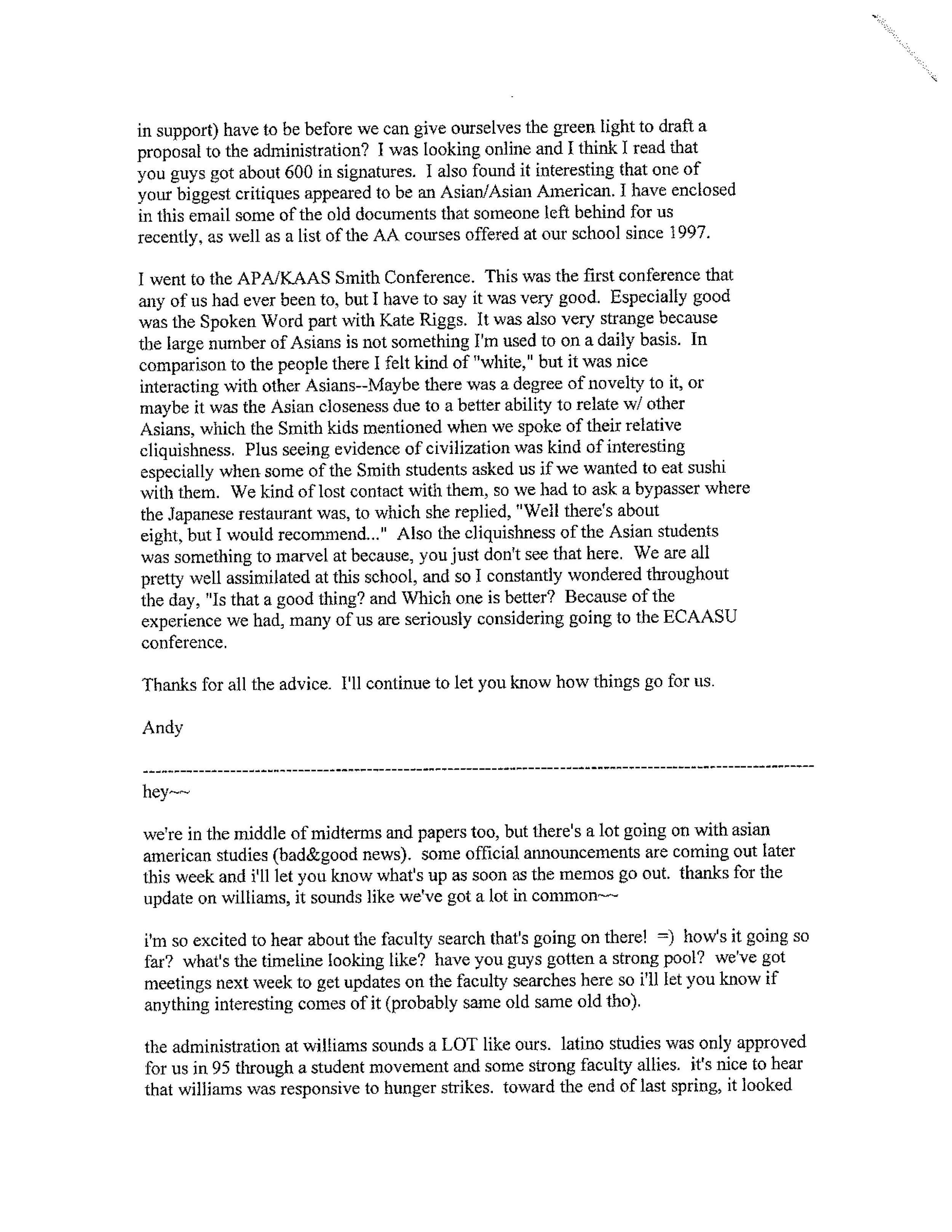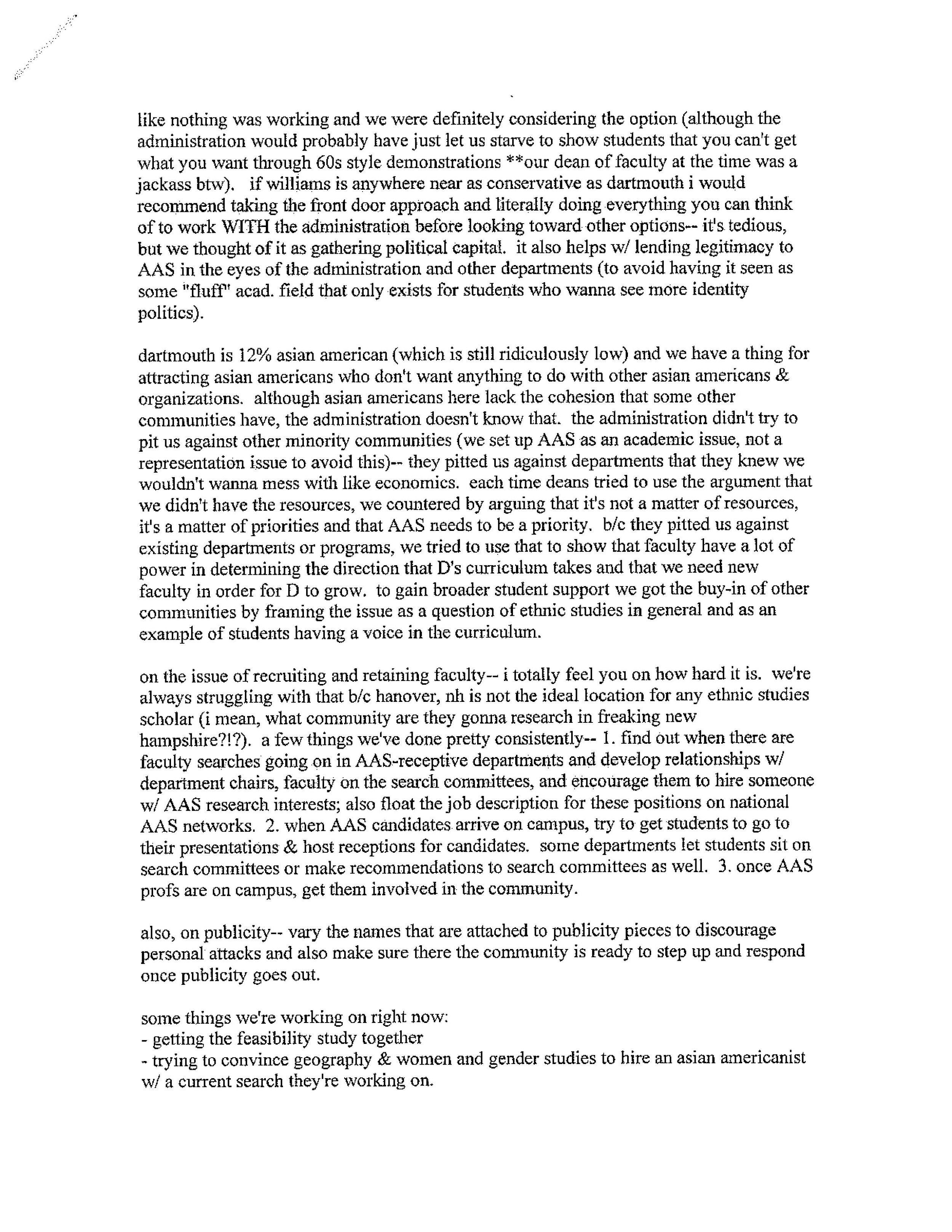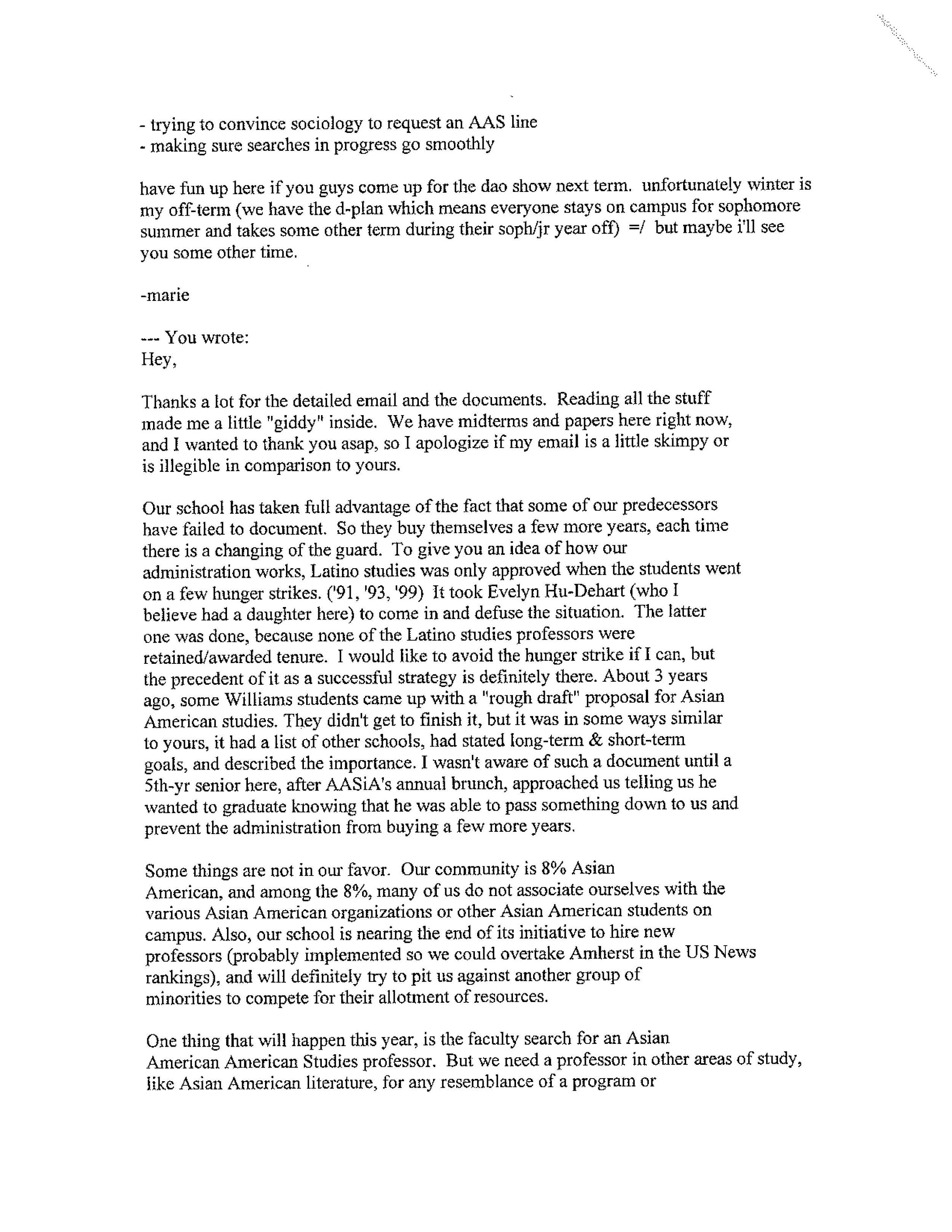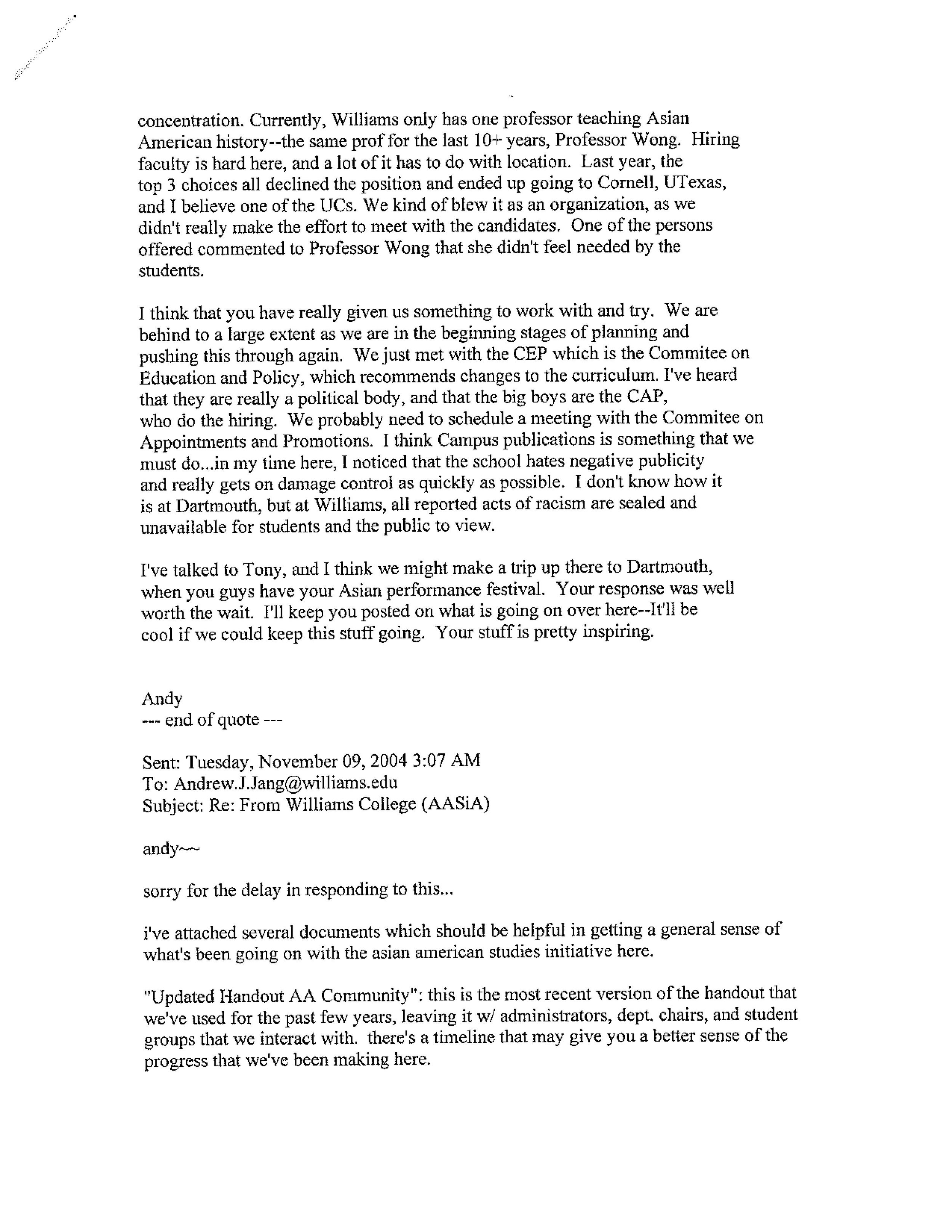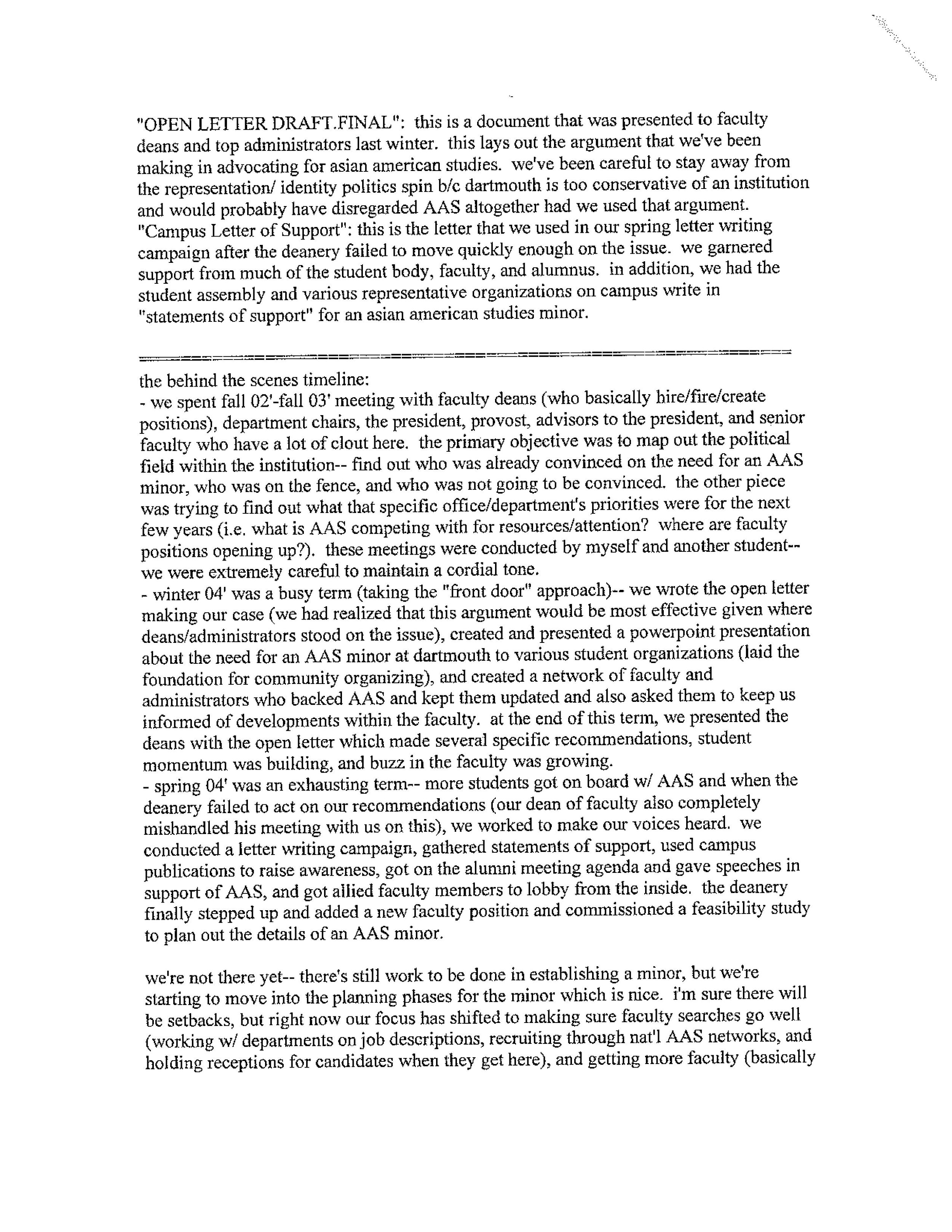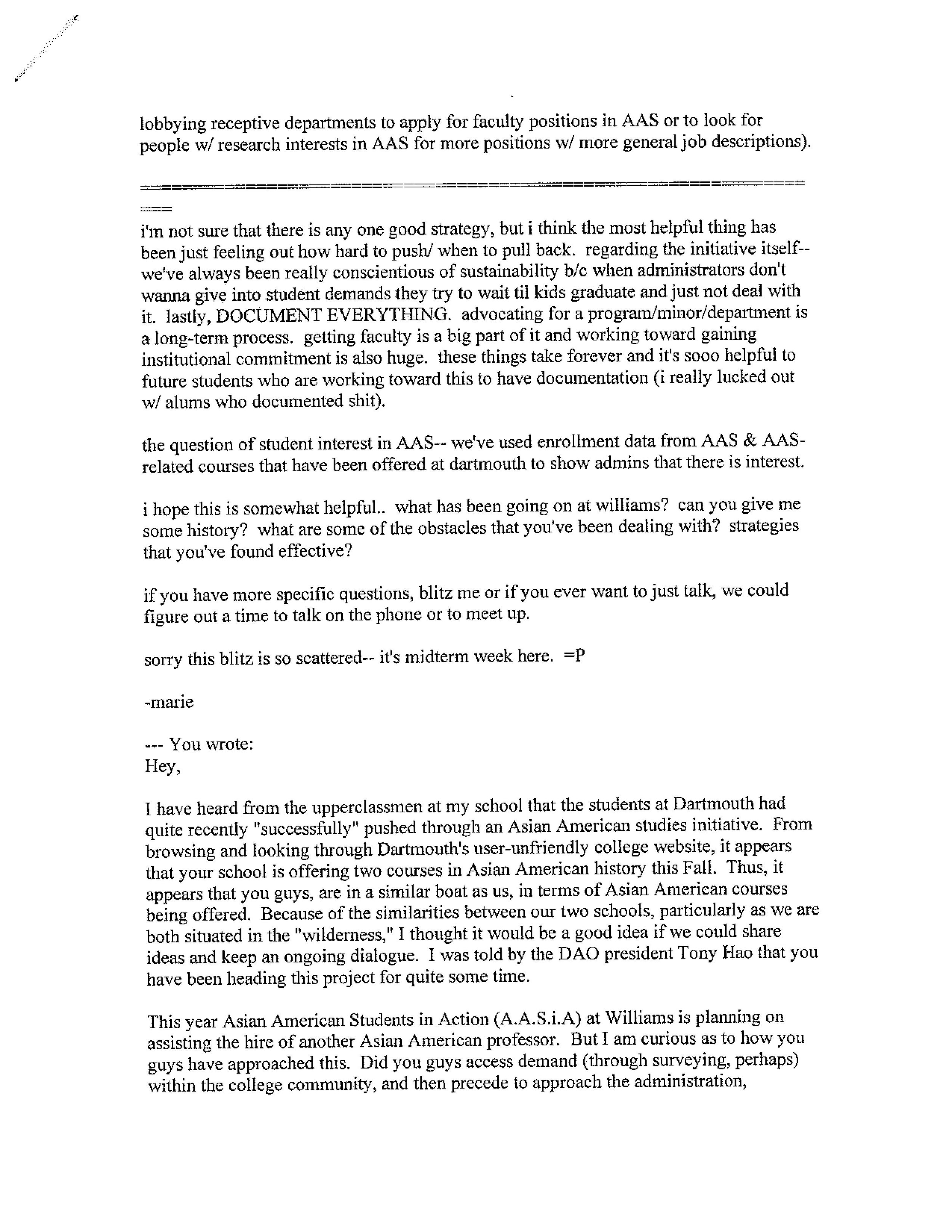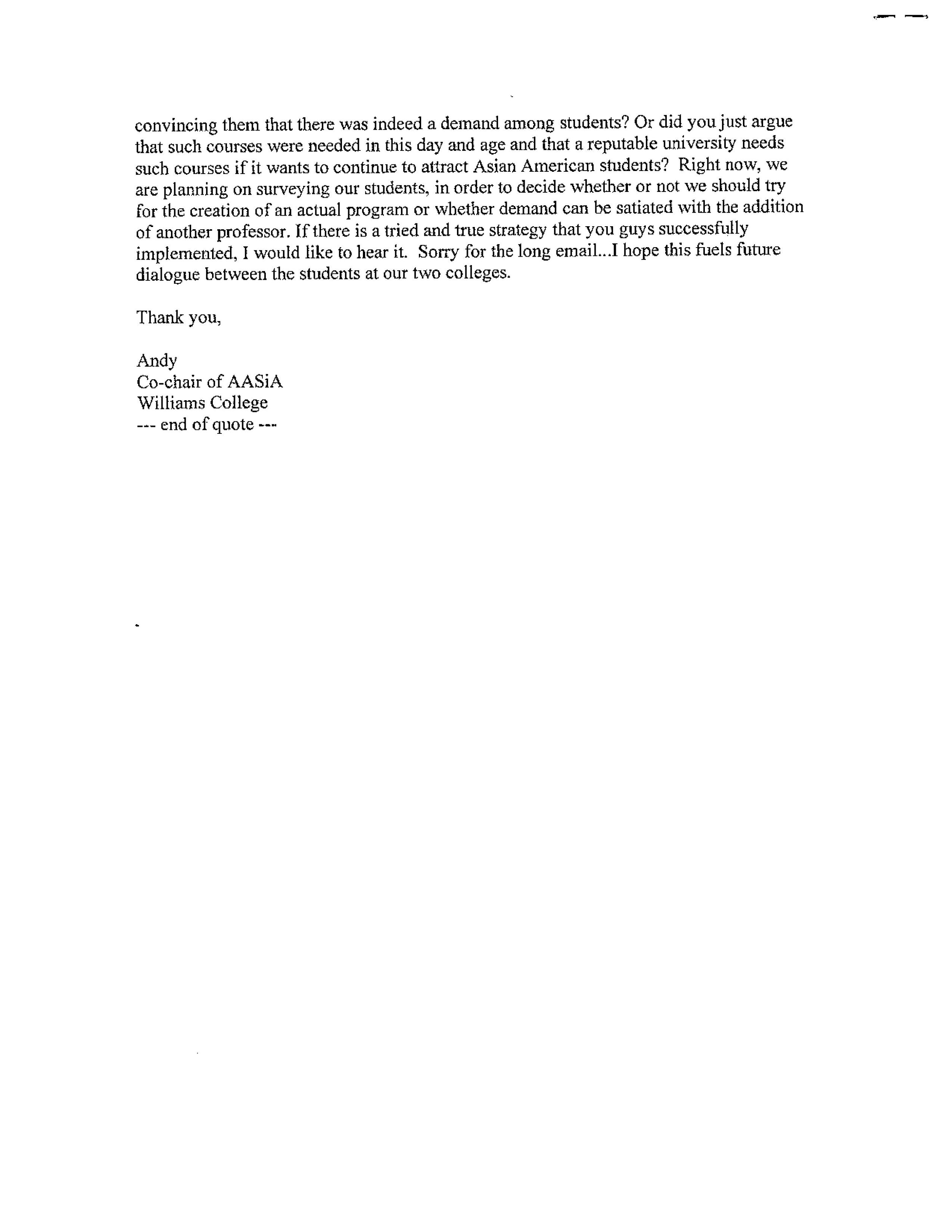September 26, 2004
A senior who was formerly the co-chair of AASiA emailed Andy Jang, explaining that they had helped start a student committee to write a proposal for Asian American Studies. The proposal had been started in the early 90s and during the emailer's time at AASiA, a group of students had decided to re-write the proposal. The proposal was intended to be presented to CEP, but never made it so they sent the draft of the proposal to Andy Jang in hopes that current AASiA members would be willing to continue the movement. The former co-chair of AASiA also wrote that in seeing the proposal half-finished, the committee's "worst fear" had come true and the administration had stalled progress by waiting out current students so that a new generation of students with no knowledge of institutional history would take their place and hold the movement off for another 3-4 years.
Fall 2004
A member of AASiA speaks on a panel for Ethnic Studies hosted by the Multicultural Center or the Davis Center. The speaker was brought in to speak about Asian Pacific American Studies at Williams, particularly to talk about the institutional history regarding the fight for Asian American Studies and also stressing the need for this part of Williams' students' education. The notes for the speech can be seen below:
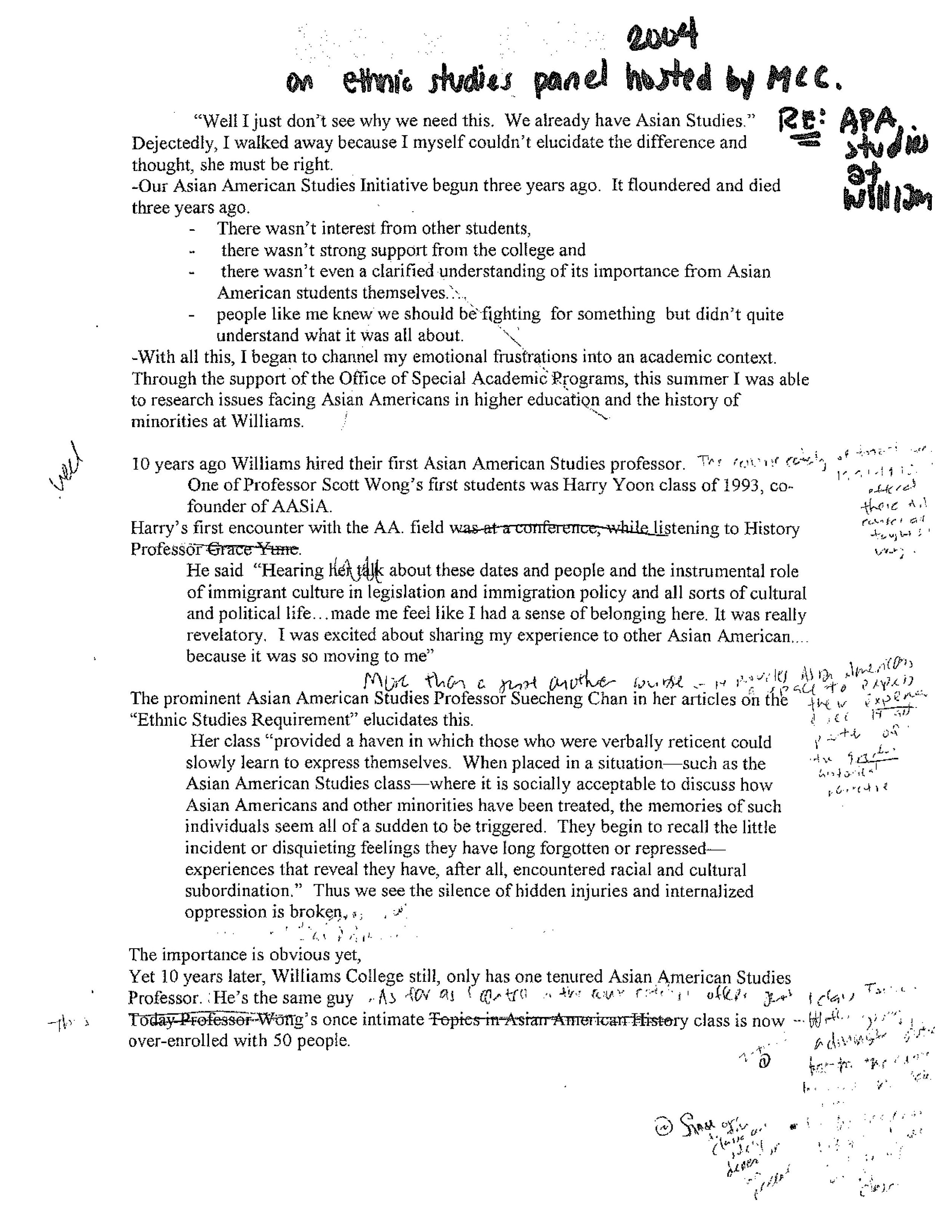
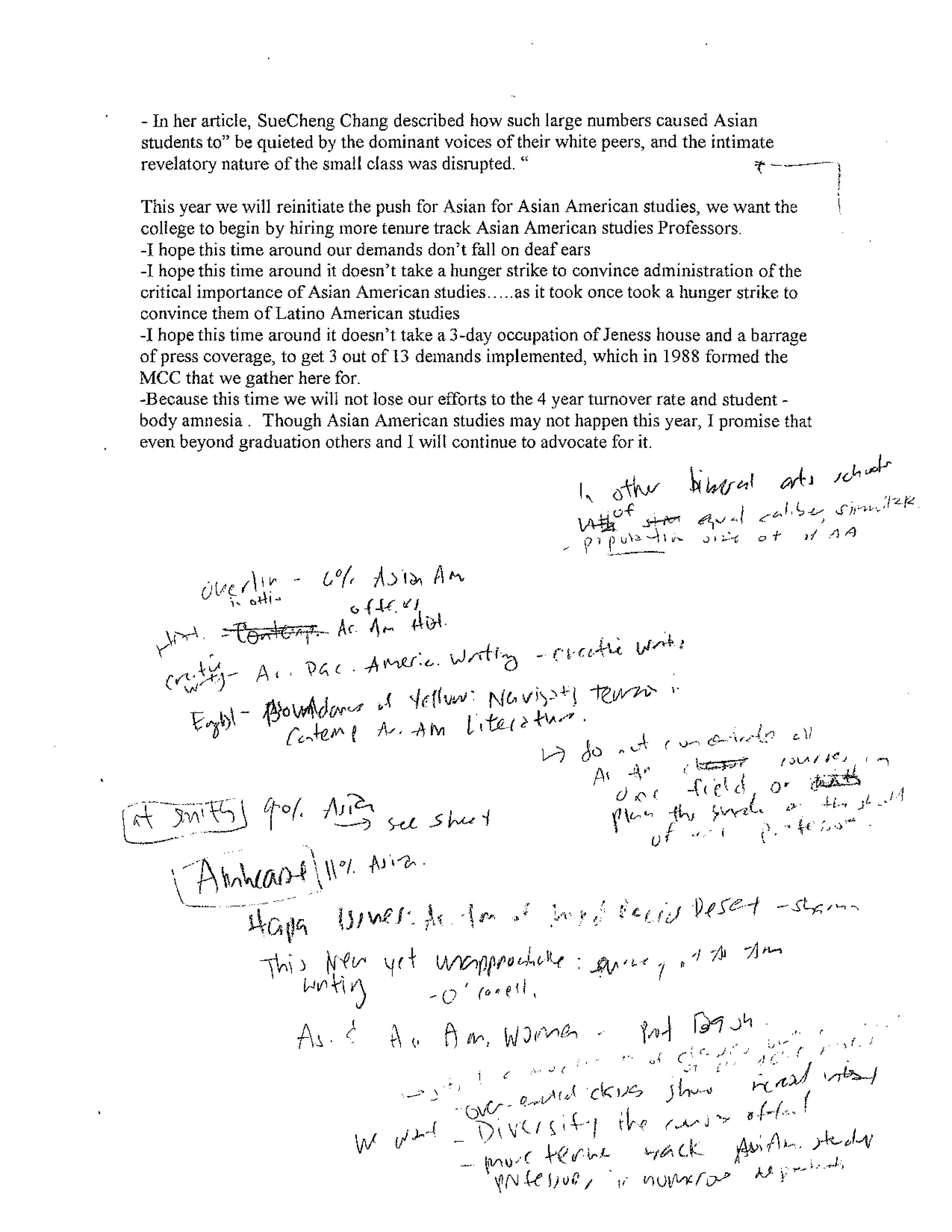
Late Fall 2004
AASiA writes a proposal for Asian Pacific American Studies, stating the why the program should be established as well as a description for what the program could look like and the classes that could be offered in various different disciplines. A multitude of current students at the time and alumni signed the proposal.
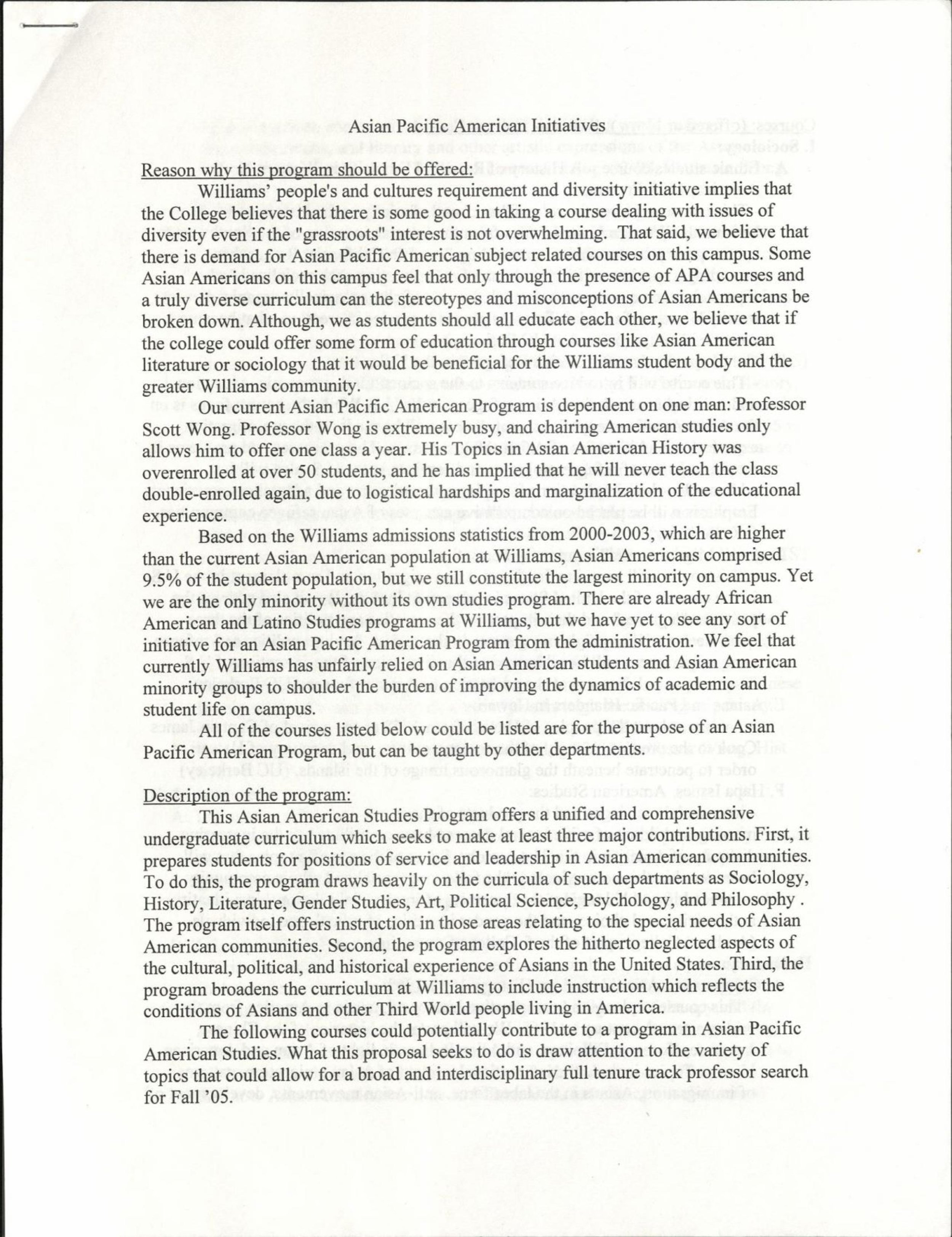
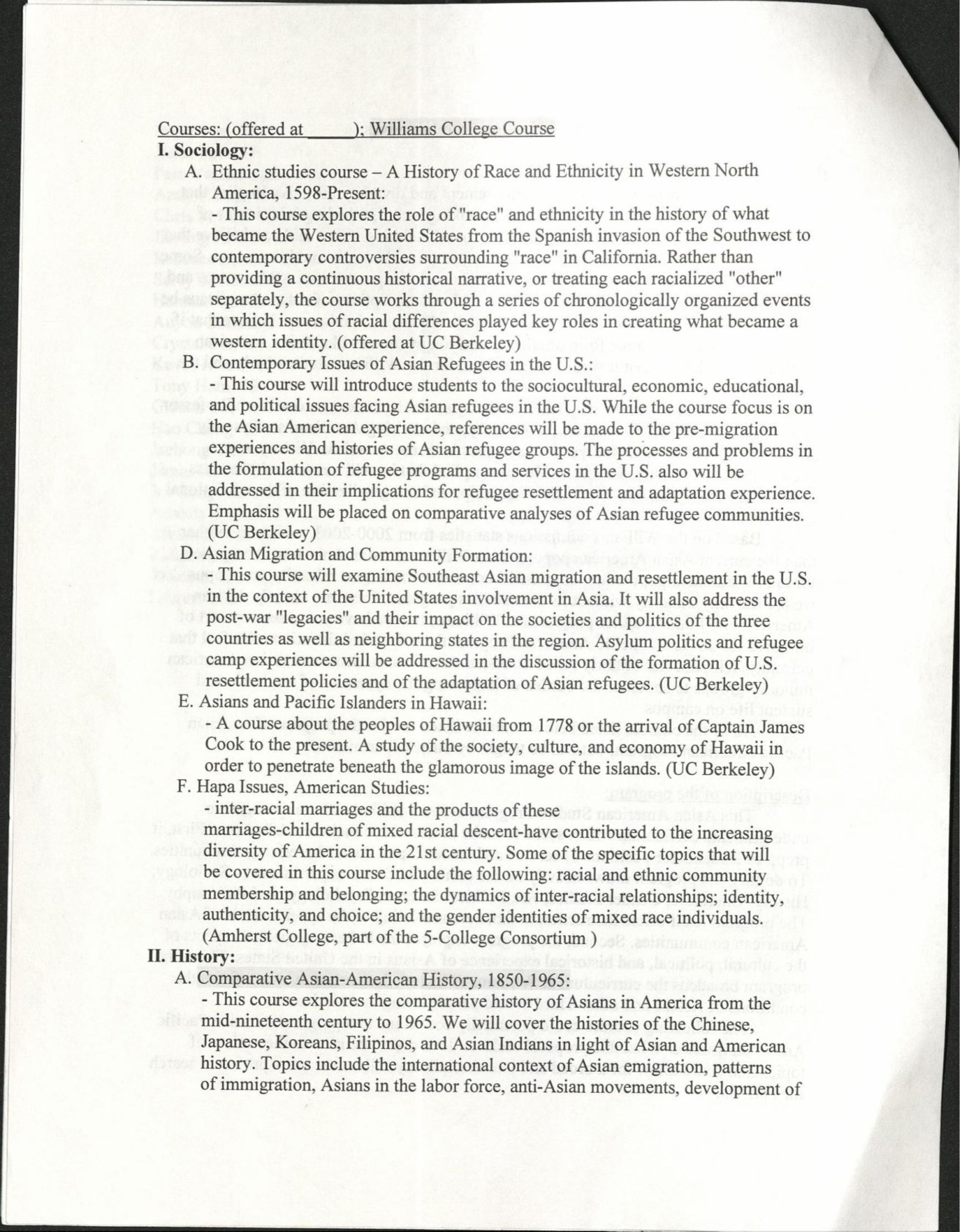
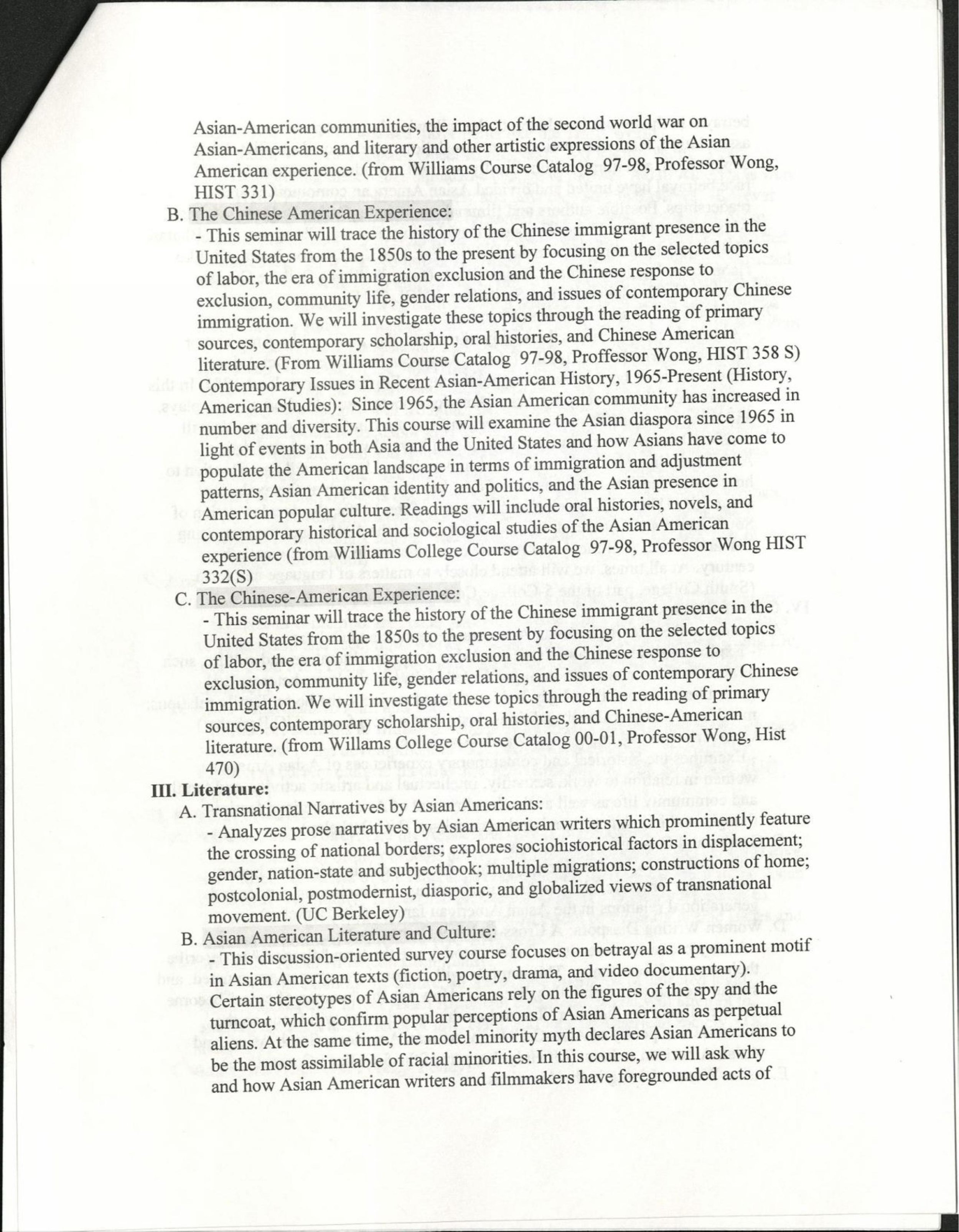
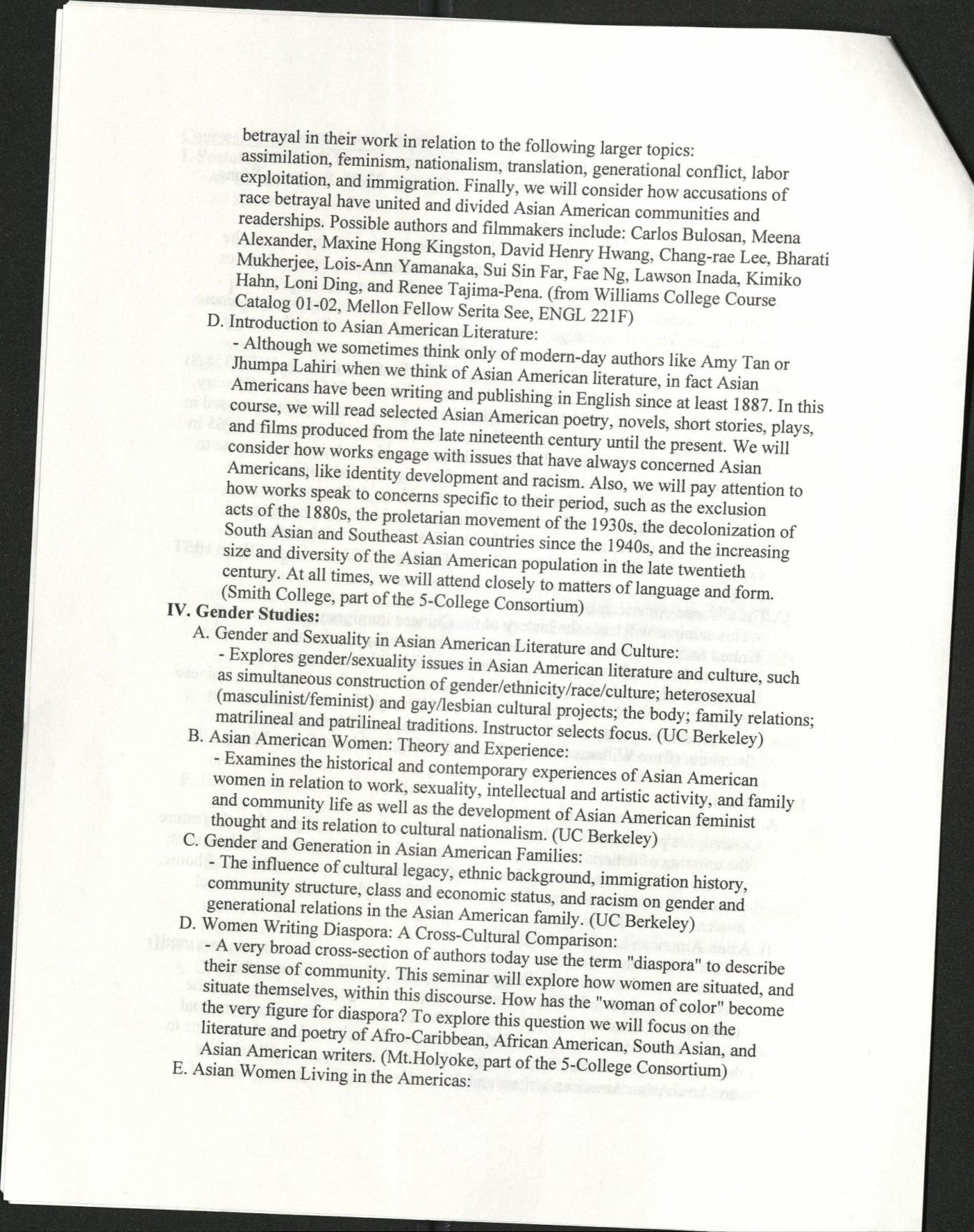
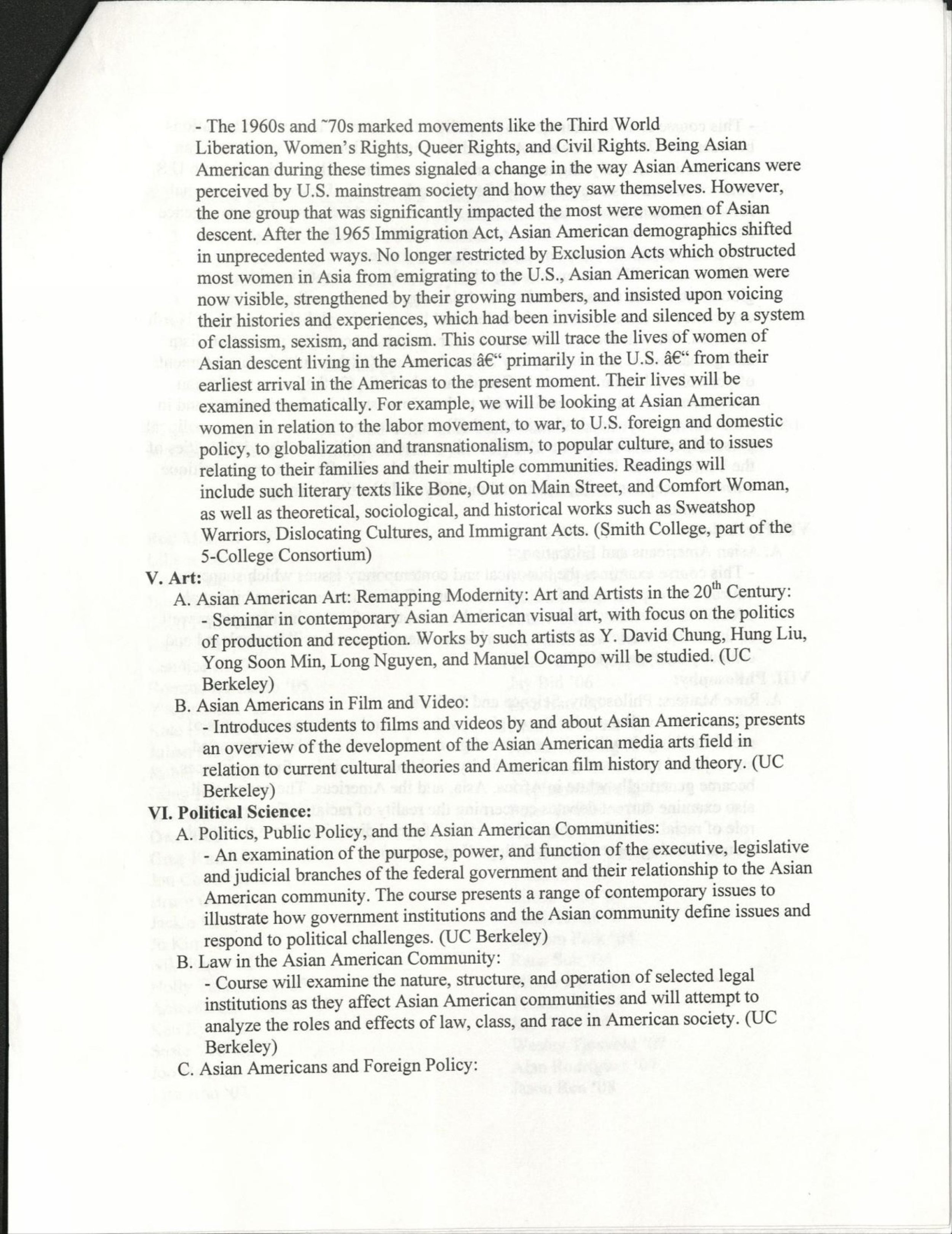
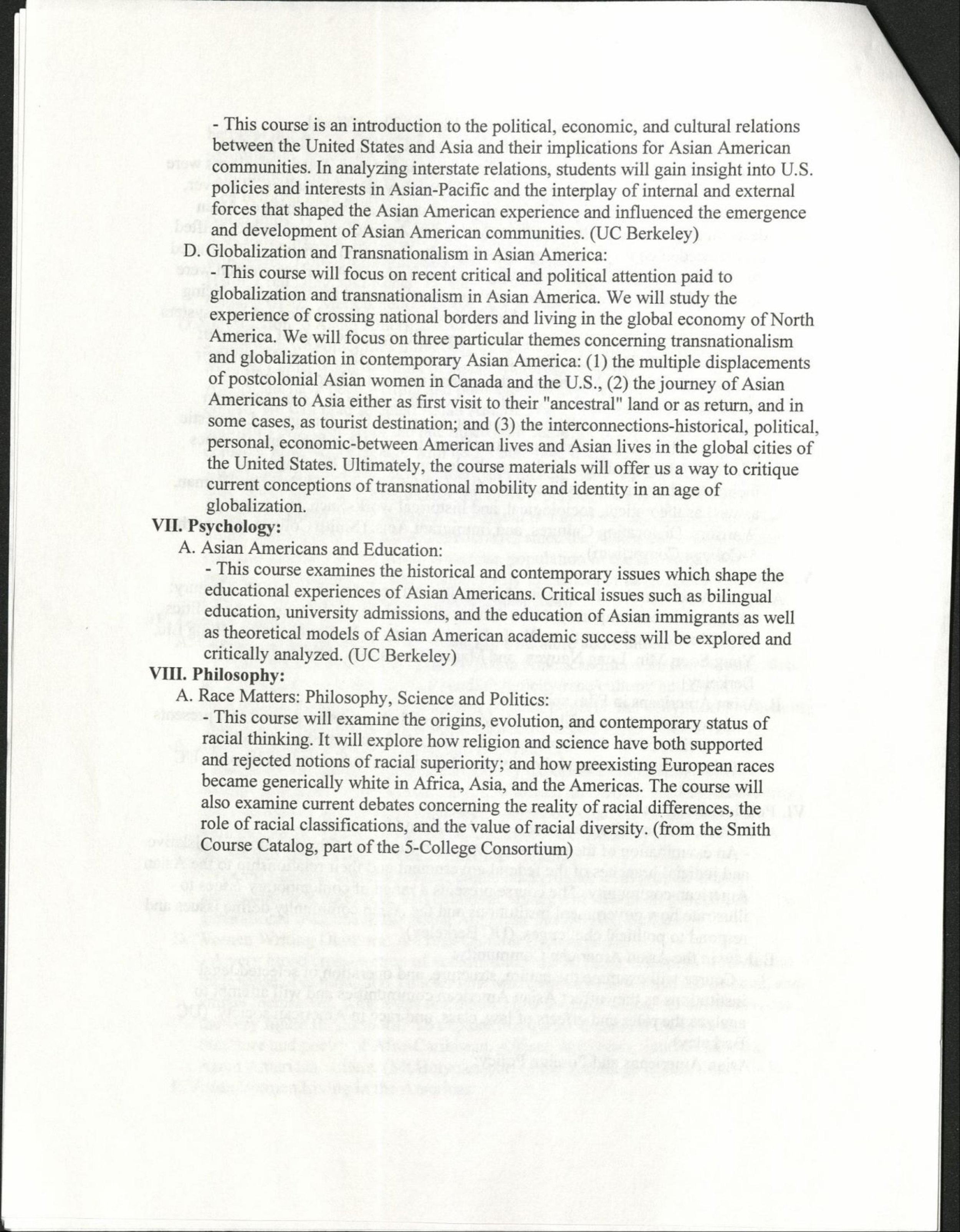
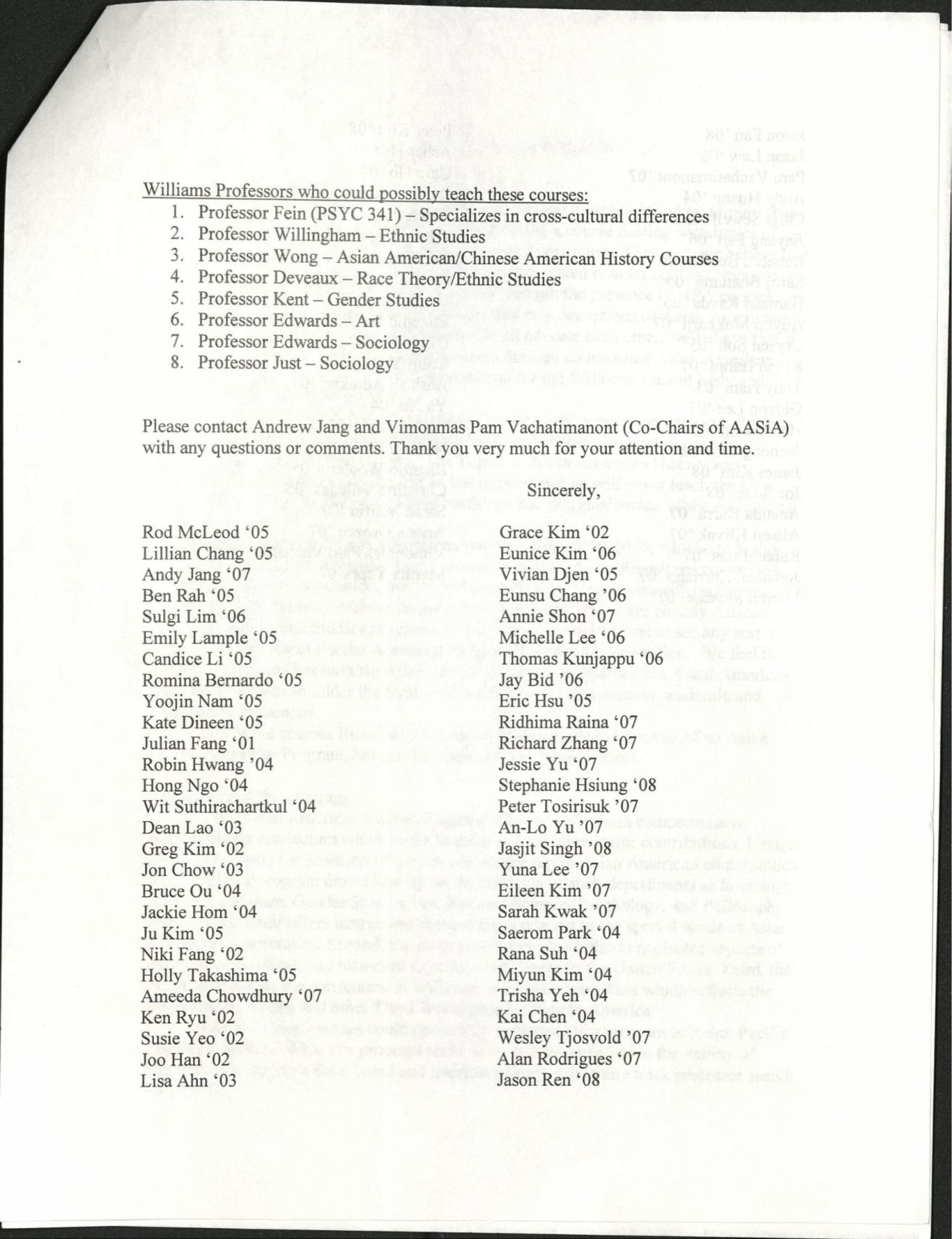
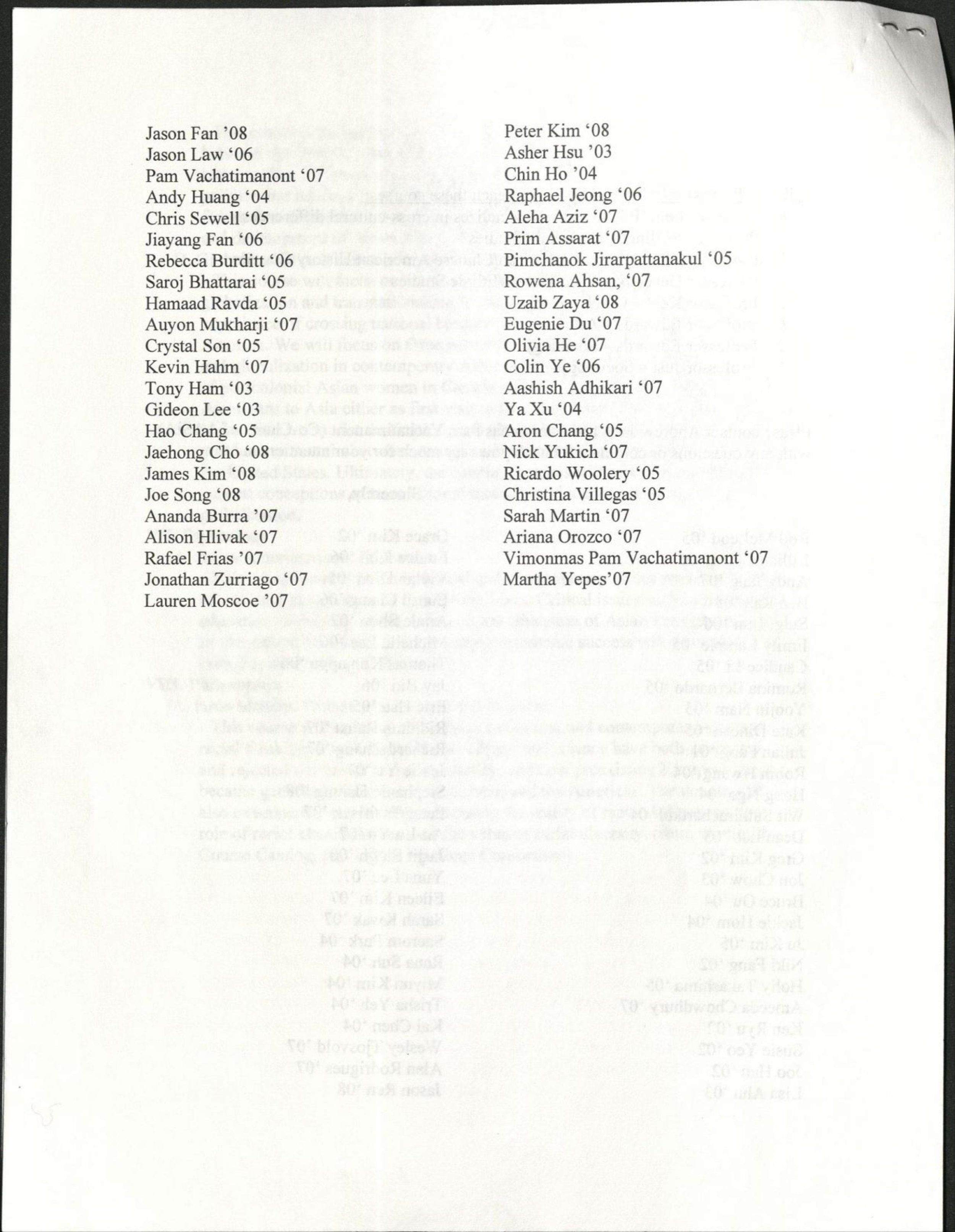
November 9, 2004
Andy Jang, co-chair of AASiA from 2004 to 2005 documented an email exchange with Marie, a student active in the Asian American Studies scene at Dartmouth. The two discussed strategy and the state of Asian American Studies at their two institutions. At the time, Professor Scott Wong was the only Asian American professor at Williams and AASiA was pushing for another professor to be hired.
April 2005
The Committee on Educational Policy (CEP) conducted a diversity self-study in April of 2005, finding that African Americans and Asian Americans were less likely than Latinx students and White students to evaluate their Williams experience as "excellent." In this report, the CEP recognized the student demand for Asian Pacific American Studies, Arabic language, and Jewish Studies and wrote about the changes that were planned for the following year(s) to address these needs. Particularly, the report said that "most notably, American Studies has hired a specialist in Asian-American literature." However, though the CEP clearly acknowledged the holes in the curriculum, the CEP said that the "size of the faculty [could not] be further expanded to any significant degree." Ultimately, the report acknowledged students' demand for a Asian Pacific American Studies program yet made no mention of future efforts to further the conversation about establishing program, establishing the College's hiring of an Asian Americanist as a solve to the issue at hand.
The second part of the document is an email exchange between two seniors at the time. One senior forwarded the CEP study to the other and discussed further strategies of how to keep fighting for Asian Pacific American studies. They discussed giving Williams negative reviews on the senior survey to further support their demands. They also talked about a recent movement at Harvard where multiple student groups on campus got Harvard to divest $4.4 million in shares from a company that was linked to Sudan. They did this through creating a petition (which collected 1000 signatures), met with Harvard administrators, and protesting peacefully.
